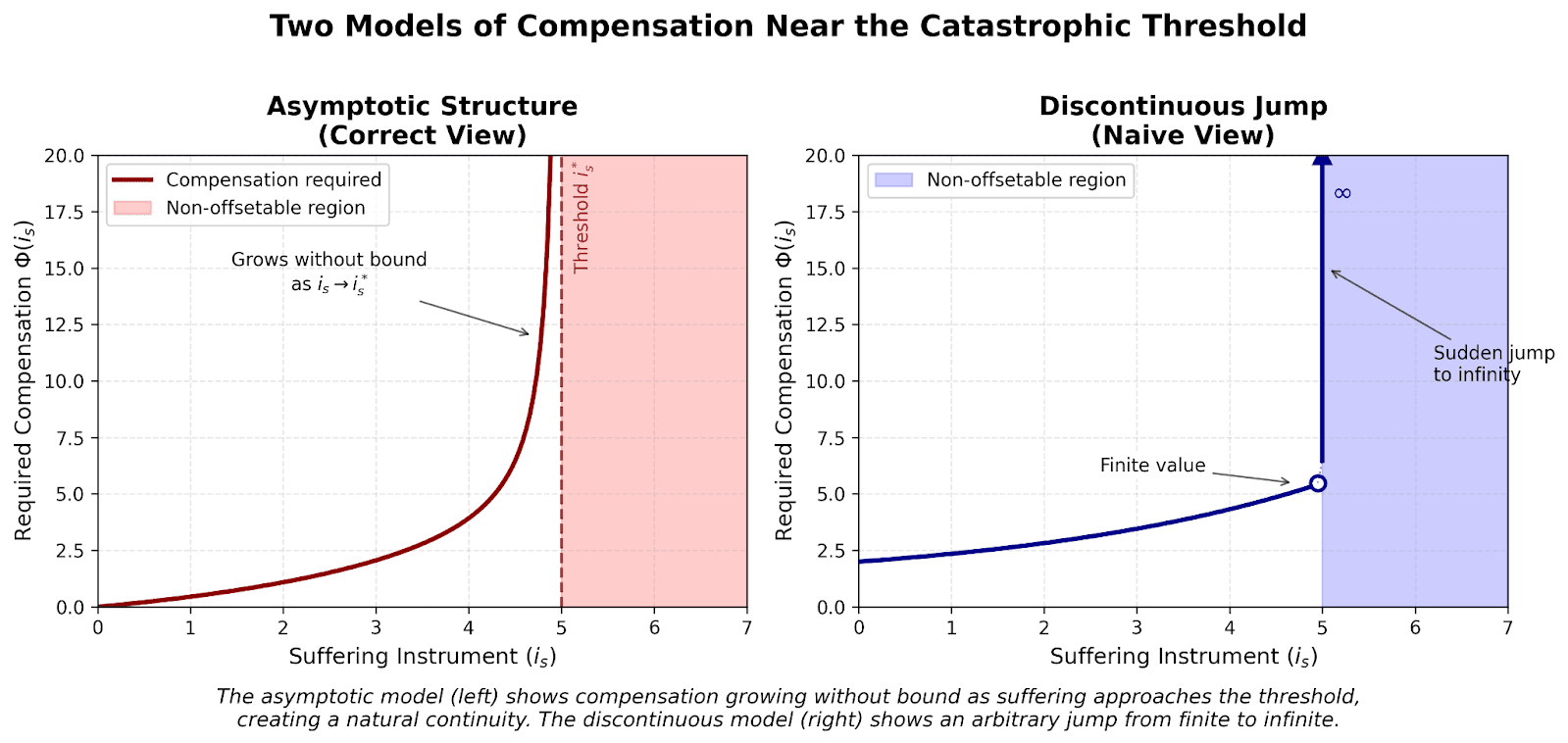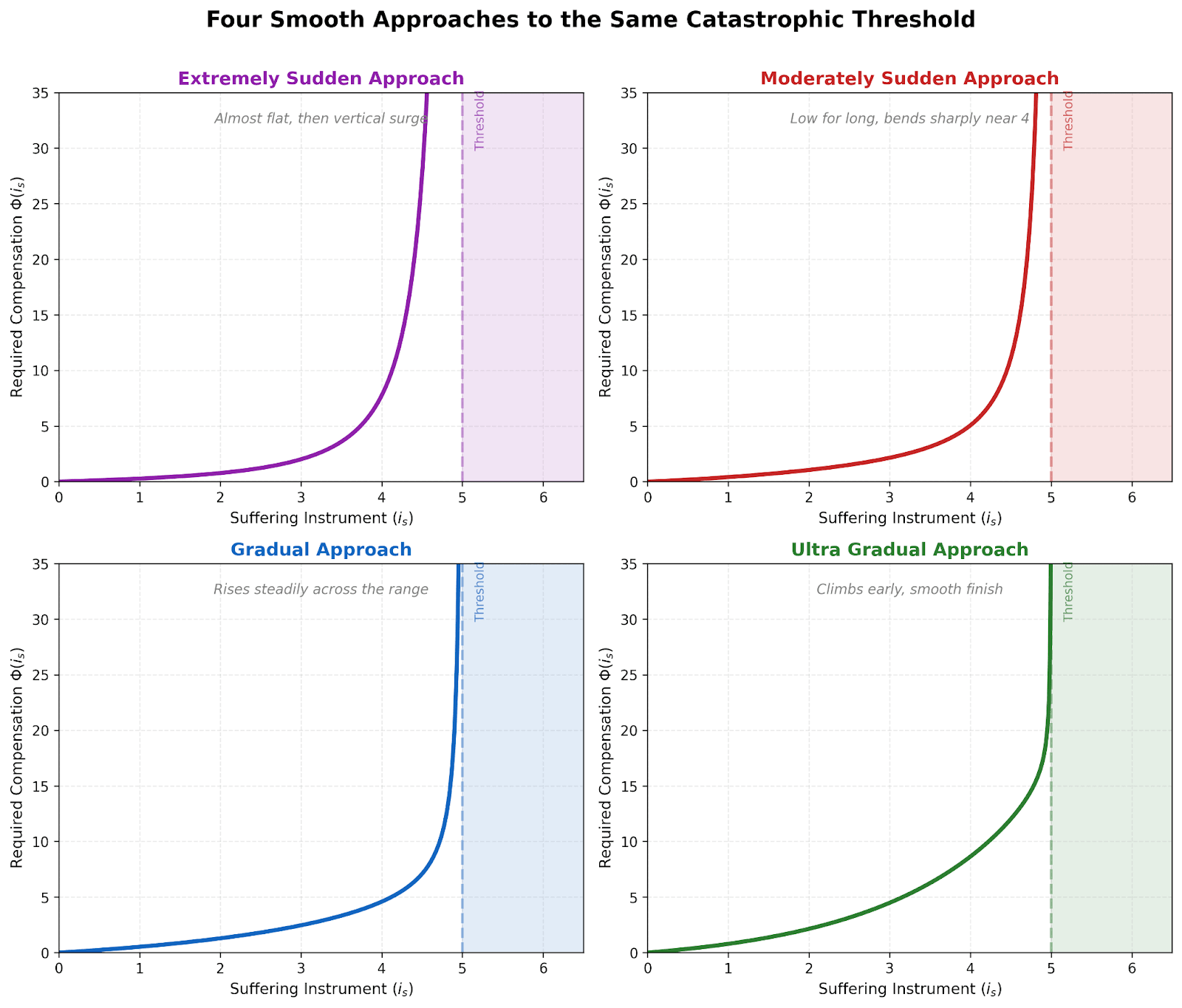“Utilitarians Should Accept that Some Suffering Cannot be ‘Offset’” by Aaron Bergman
Description
Note to competition judges: feedback extremely welcome!
Preface
Relationship to "The Case for Strong Longtermism"
This post engages with themes central to Greaves and MacAskill's "The Case for Strong Longtermism" in Essays on Longtermism, offering not a refutation but an important reframing of how we should think about far-future moral priorities. While Greaves and MacAskill compellingly argue that far-future effects dominate the moral importance of our actions today, my argument suggests that the quality and trajectory of future lives, and specifically whether they contain extreme suffering that crosses or comes near a threshold of non-offsetability, should be the predominant longtermist concern.
In Section 6 ("Robustness of the argument"), Greaves and MacAskill briefly touch on variations in axiology, including risk aversion and prioritarianism, noting these might actually strengthen rather than weaken the case for longtermism. My thesis extends this line of thinking much further: if some suffering genuinely cannot be [...]
---
Outline:
(00:16 ) Preface
(02:15 ) Intro
(03:05 ) How to read this post
(03:47 ) Part I: The logical claim
(03:55 ) A brief aside
(04:42 ) 1. Introduction: what we take for granted
(05:32 ) 2. The meaning of utilitarianism and the hidden sixth premise
(05:53 ) The Utilitarian Core
(06:59 ) What is left out
(07:34 ) Representation premise.
(08:56 ) 3. Why real-number representation isnt obvious
(09:02 ) What utilitarianism actually requires
(09:40 ) Where cardinality might hold (and where it might not)
(10:55 ) Alternative mathematical structures
(12:17 ) The point
(13:46 ) 4. The VNM (non-) problem
(17:51 ) Not an epistemic red flag
(18:46 ) Part II: The metaphysical claim
(19:00 ) 5. The argument from idealized rational preferences
(19:05 ) The setup: you are everyone
(20:05 ) The question
(21:43 ) The burden of idealization
(23:02 ) What this reveals
(23:29 ) Not a proof
(24:32 ) 6. The implications of universal offsetability are especially implausible
(25:49 ) The moral difference
(27:16 ) 7. The asymptote is the radical part
(28:41 ) Why instruments?
(30:03 ) The compensation schedules structure
(30:49 ) Why this Is already radical
(32:25 ) 8. Continuity and the location of the threshold
(33:33 ) Where the threshold falls
(34:14 ) 9. From arbitrarily large to infinite: a small step
(36:05 ) 10. The phenomenology of extreme suffering
(38:29 ) 11. Addressing major objections
(38:44 ) Time-granularity problem
(40:08 ) Extremely small probabilities of terrible outcomes
(41:52 ) Evolutionary explanations of intuitive asymmetry
(44:04 ) Doesnt this endorse destroying the world?
(48:54 ) General principle
(49:14 ) 12. Conclusion
(49:18 ) Implications
(49:54 ) We keep whats compelling
(50:52 ) We drop whats implausible
---
First published:
October 5th, 2025
---
Narrated by TYPE III AUDIO.
---
Images from the article:


Apple Podcasts and Spotify do not show images in the episode description. Try Pocket Casts, or another podcast app.





